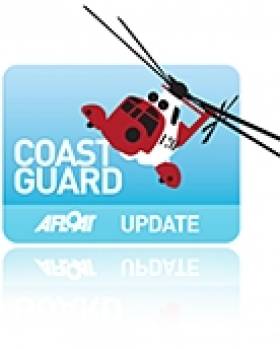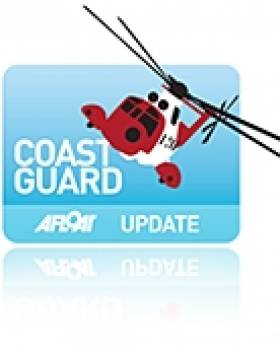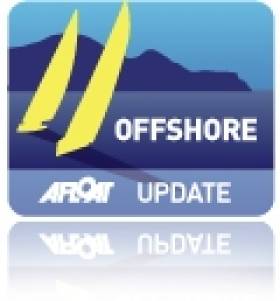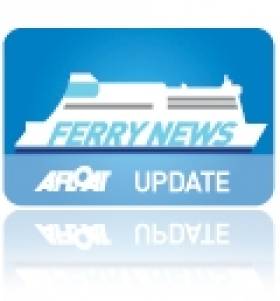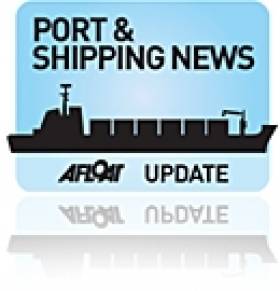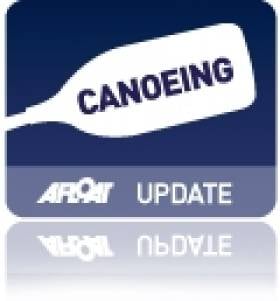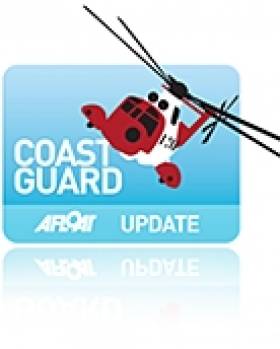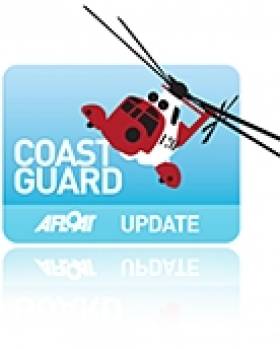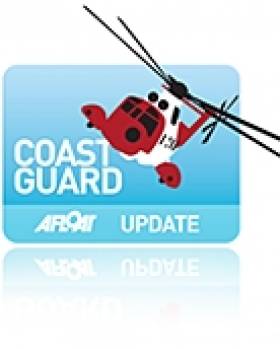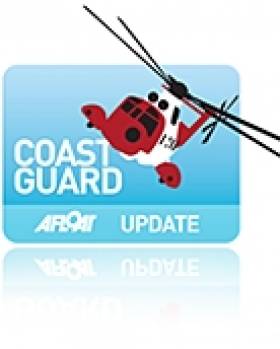Displaying items by tag: MCA
UK Coastguard Agency Head Meets Fishermen's Mission in NI
#Coastguard - The chief executive of the UK's Maritime and Coastguard Agency (MCA) was in Northern Ireland yesterday (4 March) to discuss future collaboration with the Royal National Mission to Deep Sea Fishermen.
As Fishupdate.com reports, the charity - also known as the Fishermen's Mission - provides emergency support to fishermen and their families in times of need.
Sir Alan Massey of the MCA was in Kilkeel, Co Down to meet with the charity's CEO David Dickens to find out how best to work together on their common ground of safety at sea.
"We want to encourage a culture where it becomes normal practice for all fishermen to wear a lifejacket or personal flotation device (PFD) when out at sea," said Massey.
Dickens added that the Fishermen's Mission is "keen to engage with all agencies and organisations that seek to reduce the number and severity of incidents in fishing".
Belfast Coastguard Manager Resigns As Station Takes On Extra Load
#Coastguard - For Argyll in Scotland reports that Richard Newell has resigned from his post as rescue co-ordination centre manager at Belfast Coastguard.
The news comes some weeks after the command base took on extra responsibility with the permanent closure of the Clyde coastguard station last month.
Britain's Maritime and Coastguard Agency (MCA) confirmed to the website that Newell resigned from his position around two weeks ago - and that he has assured the agency that his decision has no connection with the streamlining plans being undertaken across Britain's coastguard network.
However, For Argyll alleges Newell had made it known locally that "if he considered the future [of the coastguard service] was becoming dangerous, then he would go".
As previously reported on Afloat.ie, campaigners for the Clyde coastguard station in western Scotland were taken aback by the early transfer of helicopter dispatches to Belfast and Stornoway in November, ahead of the base's permanent closure on 18 December last.
More than 30 jobs were lost with the scrapping of the Clyde control centre at Greenock, with much of its role now being taken up by the Belfast command centre at Bangor across the North Channel - a change to the original plan for Scottish stations to share the load till 2015.
French Skipper Fined £9,000 for Breaking Navigation Rules
A French skipper has been fined £9,000 for the infringement of navigation rules during his Round Britain and Ireland record attempt in June. Marc Guillemot was charged with breaking navigation rules twice in the Straits of Dover during his attempt to beat his own record.
Following his fine Guillemot issued the following statement:
Today, Thursday 6th December 2012, the British justice system issued its judgement following Marc Guillemot's infringement of navigation rules during his Round Britain and Ireland record attempt in June 2012. The skipper will have to pay a fine of 9 000 £.
Reminder of what happened
On 7th June 2012, Marc Guillemot was charged with breaking navigation rules twice in the Straits of Dover during his attempt to beat his own record. Marc Guillemot and his crew did in fact enter the traffic separation system without respecting the lanes and rules regarding crossing this zone.
On 12th July, Marc Guillemot willingly attended a meeting following a summons from the British coastguards (MCA) to find out exactly what he was being accused of and immediately accepted their version of events.
In early September, he was summoned to a hearing, which was due to take place in Southampton on 2nd October at the Magistrates Court. The sailor, who was busy preparing for the Vendée Globe offered his excuses and was represented by his lawyer, to whom he gave instruction to plead guilty.
The judge did not wish to excuse Marc Guillemot's non-attendance and issued a warrant against the skipper. The validity of the warrant issued by the judge was contested by Marc Guillemot at the high court, which led to it being cancelled, and his summons to appear was put back until after the Vendée Globe.
Marc Guillemot was therefore able to line up at the start of the race on 10th November as planned.
The judgement from 6th December
Following his retiral from the Vendée Globe, Marc Guillemot made himself immediately available to the British authorities and was summoned to a hearing on 6th December at the Magistrates Court in Southampton, which he willingly attended accompanied by his legal advisors.
During the hearing, the judge issued Marc Guillemot with a fine of 9 000 £.
Captain Arrested after Belfast Lough Collision
#FERRY NEWS - The captain of the 1,500 tonnes cargo vessel Union Moon which was involved in a collision with the passenger ferry Stena Feronia in Belfast Lough last night, has been arrested by police, according to BBC News.
An investigation is under way after the accident which happened about a mile and a half from shore between Carrickfergus and Helen's Bay.
The 27,000 tonnes Stena Feronia was on its way from Birkenhead, Merseyside, to Belfast when the collision happened at about 19:45 GMT.
Coxswain of Donaghadee Lifeboat Philip McNamara said the Union Moon, was brought back to Belfast.
No one was injured, but both vessels were substantially damaged. The Maritime and Coastguard Agency (MCA) said both captains had been breathalysed, to read more about this story click HERE.
Container Ship Refloated After Beaching in Cornwall
BBC News reports that the 131m-long Karin Schepers was beached near St Just early this morning.
Rescue teams were alerted to assist, but the 12-strong crew had managed to free the vessel from the sand by the time help arrived.
According to Steve Huxley of the Maritime and Coastguard Agency (MCA), the ship was "extremely lucky" to get off the sand so quickly.
The cause of the incident is not yet known.
UK Canoeing and Kayaking Stats Published
The UK's Maritime and Coastguard Agency (MCA) has published its annual canoeing and kayaking report for 2010.
Among 456 incidents involving canoes or kayaks across the UK, which include nine fatalities, many were due to people underestimating weather and tidal conditions.
The report highlighted that many canoe and kayak owners in Britain do not wear essential safety kit such as buoyancy suits or lifejackets, do not include contact details in their craft, and are not a part of the CG66 small boat safety scheme which enables the coastguard to easily identify them.
There have also been increased reports of kayakers getting into difficulty which turn out to be kayakers fishing offshore. The MCA urges any kayakers doing so to contact the coastguard to avoid wasted searches.
The report is available to read and download HERE.
UK Coastguard Reforms Branded 'Shambles'
Britain's shadow transport secretary has branded a "shambles" plans to reform the UK coastguard service that could see the closure of Northern Ireland's only dedicated search and rescue base.
The Belfast Telegraph reports that Labour's Maria Eagle questioned Secretary of State Philip Hammond on the issue in the Commons on Thursday.
"Why does he not just abandon the ill-thought-through proposals, which will leave our coastline a more dangerous place?' she asked.
Hammond, however, dismissed Eagle's challenge as "opportunism", noting that proposals to reform services of the Maritime and Coastguard Agency (MCA) were first made by the previous Labour government.
As previously reported on Afloat.ie, British Prime Minister David Cameron has already promised a rethink on the plans to streamline the UK's network of coastguard stations.
The public consultation on the proposed cuts ended on Thursday.
Possible Rethink on UK Coastguard Cutbacks
The British government could be ready to change its plans for the streamlining of the UK coastguard service.
The Belfast Telegraph reports that while there will be no turning back on reforms, concessions such as closing fewer stations and keeping more open 24/7 are being considered - which could save Northern Ireland's only full-time coastguard base from the chop.
The centre at Bangor was earmarked for scaleback or closure under plans proposed by Shipping Minister Mike Penning, But he was forced to extend the consultation period, with a spokesperson saying that "the government is committed to taking all points of view into account before decicing how best to proceed".
Shadow Shipping Minister Jim Fitzpatrick said: “We were concerned about the level of cuts initially proposed and are pleased that the Government appears to be reviewing its plans."
The Belfast Telegraph has more on the story HERE.
British Coastguard Fears Loss of Choppers
The union representing coastguard staff in the UK has expressed its fears over the loss of air rescue services when a number of helicopters are transferred to Ireland next year.
Under CHC's €500m contract to provide search and rescue services for the Irish Coast Guard, four helicopters will be withdrawn from England and Scotland for redeployment in Ireland.
However, HeraldScotland reports that the Maritime and Coastguard Agency (MCA) has no plans to replace these helicopters, which separately service Scotland's Isle of Lewis and Shetland Islands as well as the Solent and Portland in England.
The recent collapse of the privatisation deal for UK search and rescue services has meant there is no new operator lined up to replace CHC.
Jeremy Gautrey of the PCS union said that the situation "has now potentially left the coastguard service stranded without the guarantee that it will have sufficient helicopters to carry out search-and-rescue operations when the current helicopters retire."
HeraldScotland has more on the story HERE.
Penning Says Meeting with Bangor Coastguard Staff Clears Air
UK Shipping Minister Mike Penning described his meeting with Bangor coastguard staff last week as "a breath of fresh air", BBC News reports.
Last Wednesday Penning met staff at Northern Ireland's only coastguard centre, which is threatened with closure under plans to streamline the UK's coastguard station network.
Minister Penning admitted to BBC News that Bangor was not on the original list of centres marked for closure.
"It was a decision made by myself and the secretary of state and we were honest about that," he said, adding that there was now "acceptance of the people in the frontline that there has to be change and there has to be modernisation".
The minister said no date had been set for a final decision on which stations would be closed.
Meanwhile, the Community Telegraph reports on confusion among the public following the meeting with Maritime and Coastguard Agency (MCA) officials in Bangor on 3 March.
Ian Graham of the Public and Commercial Services (PCS) union, which represents coastguards, said: “They didn’t really answer any of the questions from the public adequately."
He added that statistics they used in a slideshow to illustrate rescue incident start time were "misleading" as "a lot of rescues can last for hours".


























